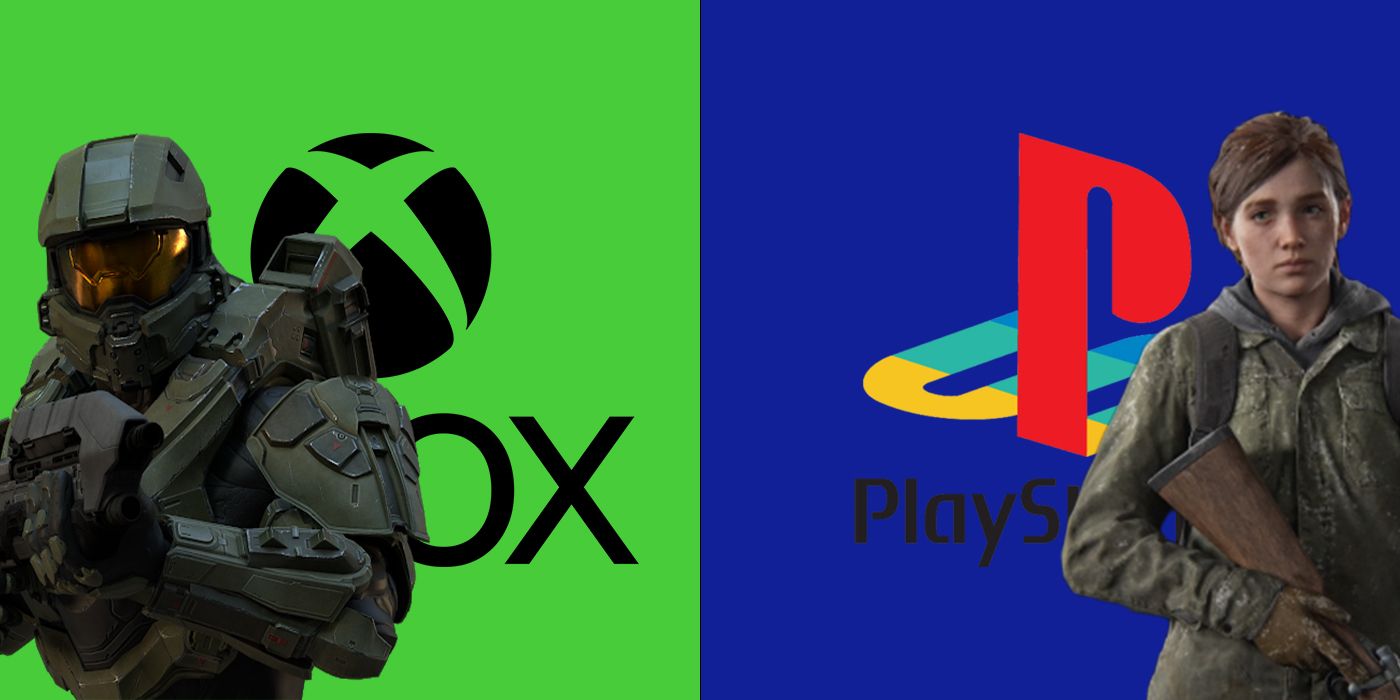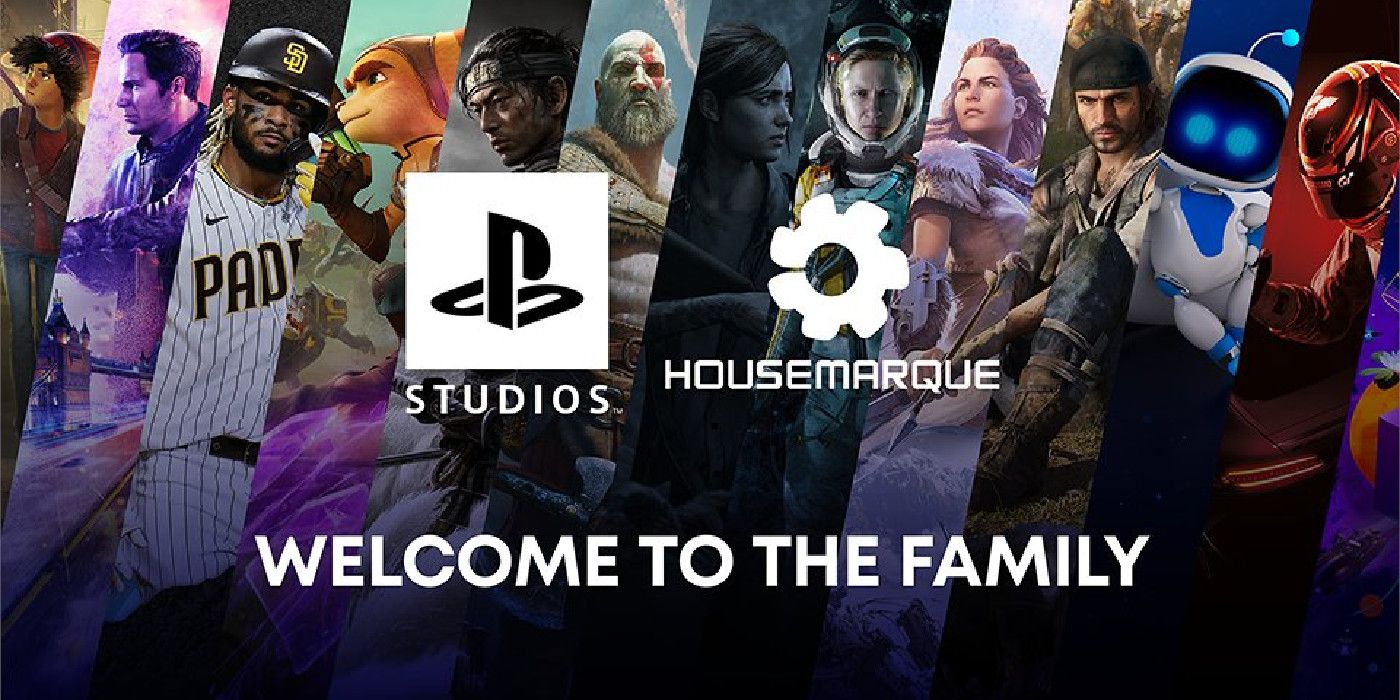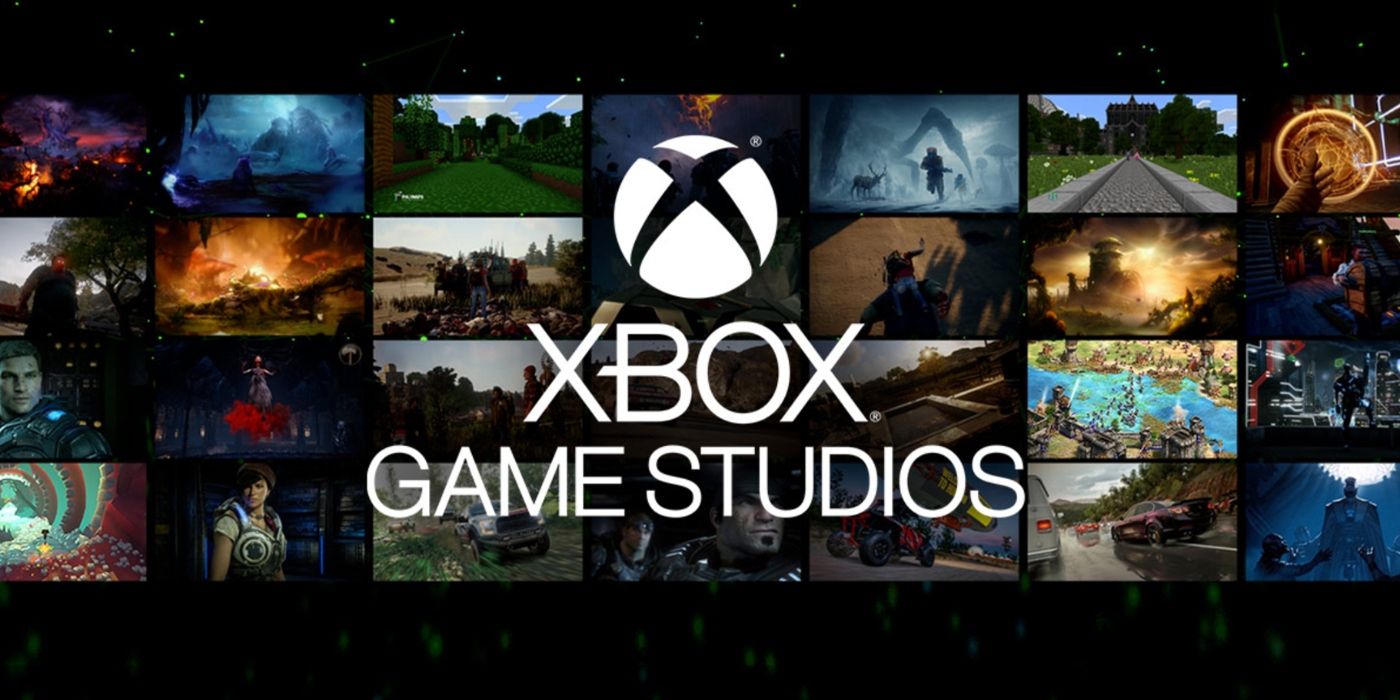PlayStation and Xbox have been locked in an interesting struggle for the past few decades, with the two brands vying to be the top dog of the games industry. While PlayStation has come out on top based on console sales, Xbox is in the middle of a major strategy overhaul that could change the games industry for good. But nowhere highlights the split between PlayStation's and Xbox's strategies than how they go about buying game studios.
Yesterday, PlayStation announced that it's acquiring Housemarque, the developer behind the recent triple-a roguelike Returnal, as well as other, smaller games like Resogun and Nex Machina. While Housemarque's name doesn't carry quite the same weight as Naughty Dog or Insomniac Games, it's still a good developer for Sony to add to its roster, especially now that it's proven its ability to create a blockbuster game.
Microsoft, and by extension Xbox, on the other hand, has been on a bit of a purchasing spree for the past few years, gobbling up studios of all sizes to bolster its exclusive roster. The most notable acquisition by a mile has been Bethesda, the studio behind smash-hit franchises like The Elder Scrolls, Fallout, and many more. With other studios, such as Arkane and MachineGames, included in the purchase, Xbox can deliver a lot more from well-regarded studios.
There's a drastic difference between how these strategies are meant to shape the perception of both companies, and it's becoming increasingly clear that PlayStation and Xbox have distinct visions for what the future of games should be. That split drives competition between the two – that's a good thing – but it also gives some insight into how each company operates.
PlayStation Exclusive Studios
When it comes to acquiring new studios, PlayStation is selective. Its current roster is specifically tailored towards delivering blockbuster games, with the likes of Naughty Dog, Insomniac Games, and Sony's Santa Monica Studio each pushing out some platform-defining titles in the past five years or so. Pick any developer under the PlayStation Studios umbrella, and it's likely produced a Game of the Year-worthy title since its inception, if not multiple.
Housemarque's acquisition illustrates that strategy. Returnal reviews highlighted the game's visual fidelity, storytelling, and core gameplay loop, all of which coupled together to make one of the most critically well-received games of the year so far. While it's had its share of issues – many critiquing the lack of a save system at launch – it's still proof that Housemarque is capable of creating a PlayStation caliber hit, which explains why Sony was willing to acquire it.
There are hints that PlayStation will acquire Bluepoint, too. Most recently releasing the Demon's Souls remake, but also having its hands in titles like the Shadow of the Colossus remake, it's admittedly odd that a Bluepoint acquisition didn't happen sooner. While nothing is guaranteed yet, PlayStation Japan uploaded an image welcoming Bluepoint to the PlayStation family alongside the Housemarque announcement, which makes the acquisition seem likely, though things can change.
Even Bluepoint fits this pattern, though. In fact, Bluepoint is almost more of a no-brainer than Housemarque is for a Sony acquisition. The developer has been entrusted with two cult classic games, one of which – Demon's Souls – being the de facto reason to pick up a PS5 at launch, for those that could find one. Bluepoint has earned an essentially flawless track record for its remakes, and it would be incredible to see the company create its own blockbuster IP.
Xbox Exclusive Studios
Xbox's strategy has been a bit more scattershot, though the approach makes sense. Xbox isn't looking for a chain of blockbuster games to keep its audience engaged, rather it's looking to build a roster of impressive titles that it can use to bolster the Game Pass library. By building out a suite of titles, Xbox can function as a sort of Netflix for games, something that Microsoft has expressed interest in the Xbox brand becoming.
For a long time, Xbox's exclusive roster was primarily home to big-name shooter franchises like Gears of War and Halo. Those franchises still have a home under the Xbox umbrella – just look at the marketing behind Halo Infinite – but there's a new emphasis on RPGs now, too. For proof, just look at the Bethesda acquisition, or better yet, Obsidian.
Xbox has had a central flaw in how its strategy works, though. PlayStation dominated the exclusive game conversation for the entire PS4 and Xbox One console generation, and Xbox's response has been to buy studios to make more exclusive games for the Game Pass roster. But Xbox has been announcing games that likely won't be released for years, with Perfect Dark and Fable being two prime examples. It makes the future Game Pass roster look more impressive, but it also leads to disappointment during events like E3, where expected games fail to make an appearance.
Things should improve over time, though. Xbox has the advantage of third-party games making Xbox Game Pass all the more attractive, which makes the service seem all the more valuable. It might not be able to rival the exclusive lineup PlayStation Studios create, but if gamers can get triple-a games for $10 a month through Game Pass, it becomes a bit easier to stomach giving up exclusive titles, especially with Xbox promising heavy hitters in the future.
Neither approach is necessarily better than the other, with each having distinct pros and cons. Those that are more budget-oriented can find a lot to love with Game Pass, but PlayStation's emphasis on blockbuster titles has produced some incredible games. There's a best of both worlds somewhere in the middle, but it might take a third company to make something like that come to fruition.



